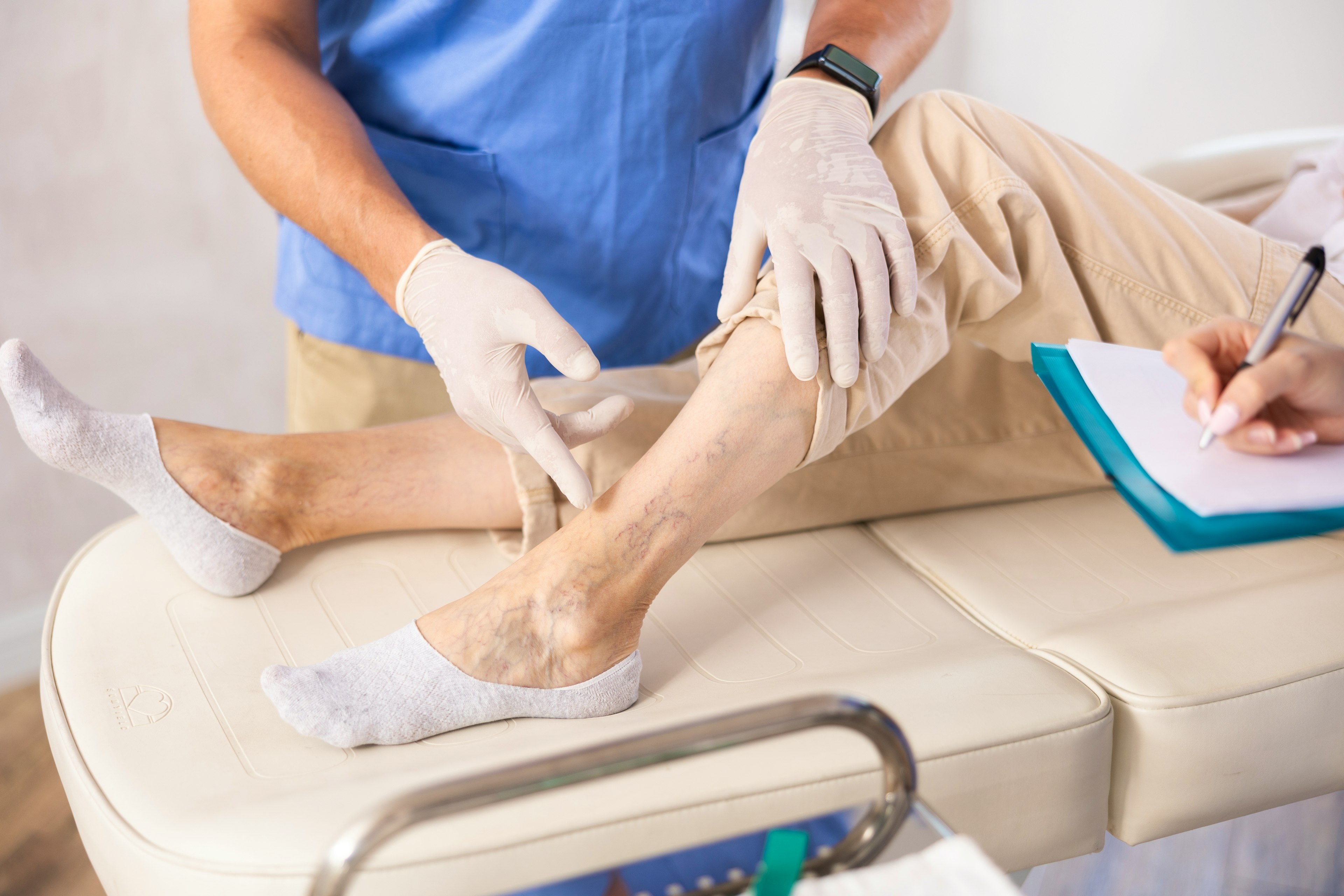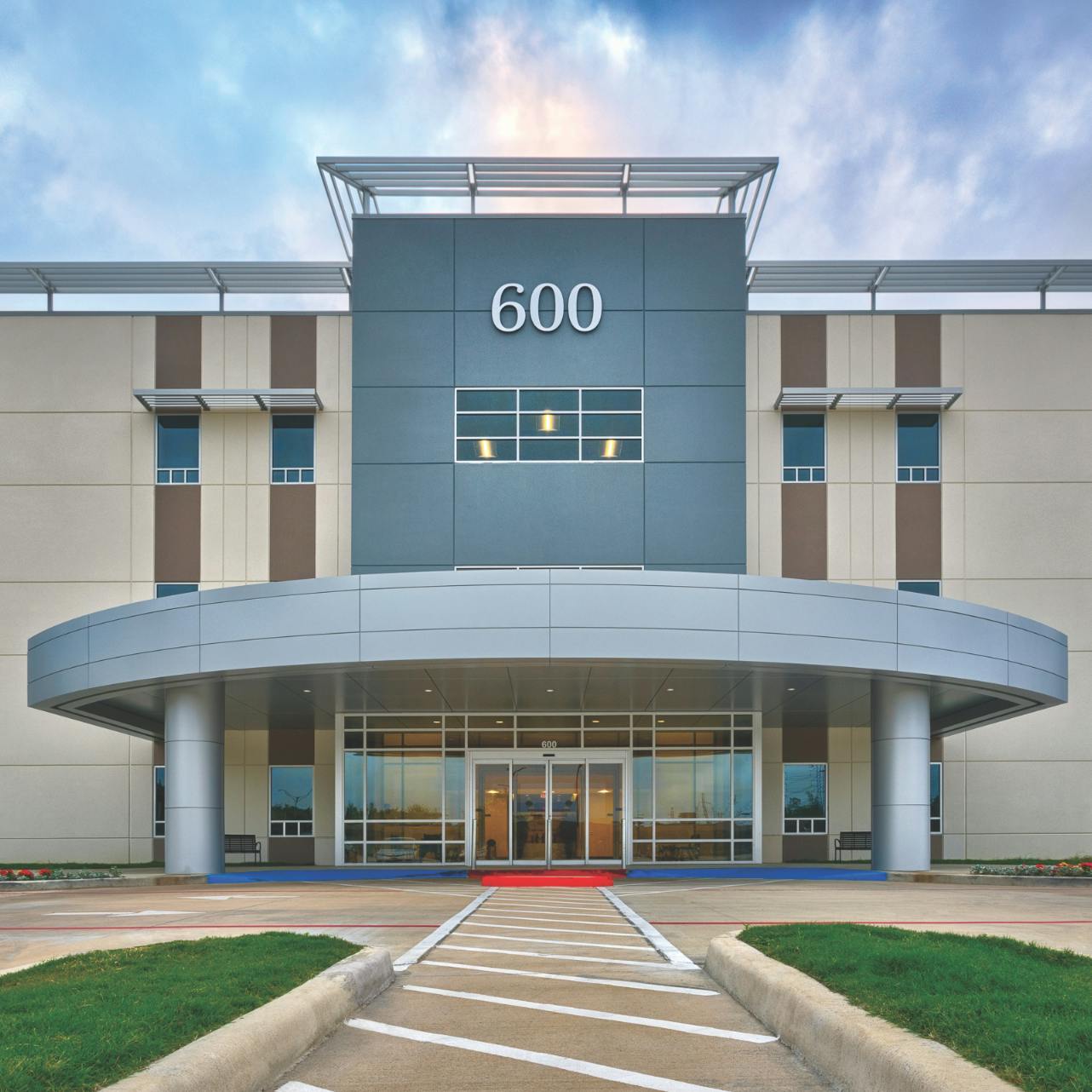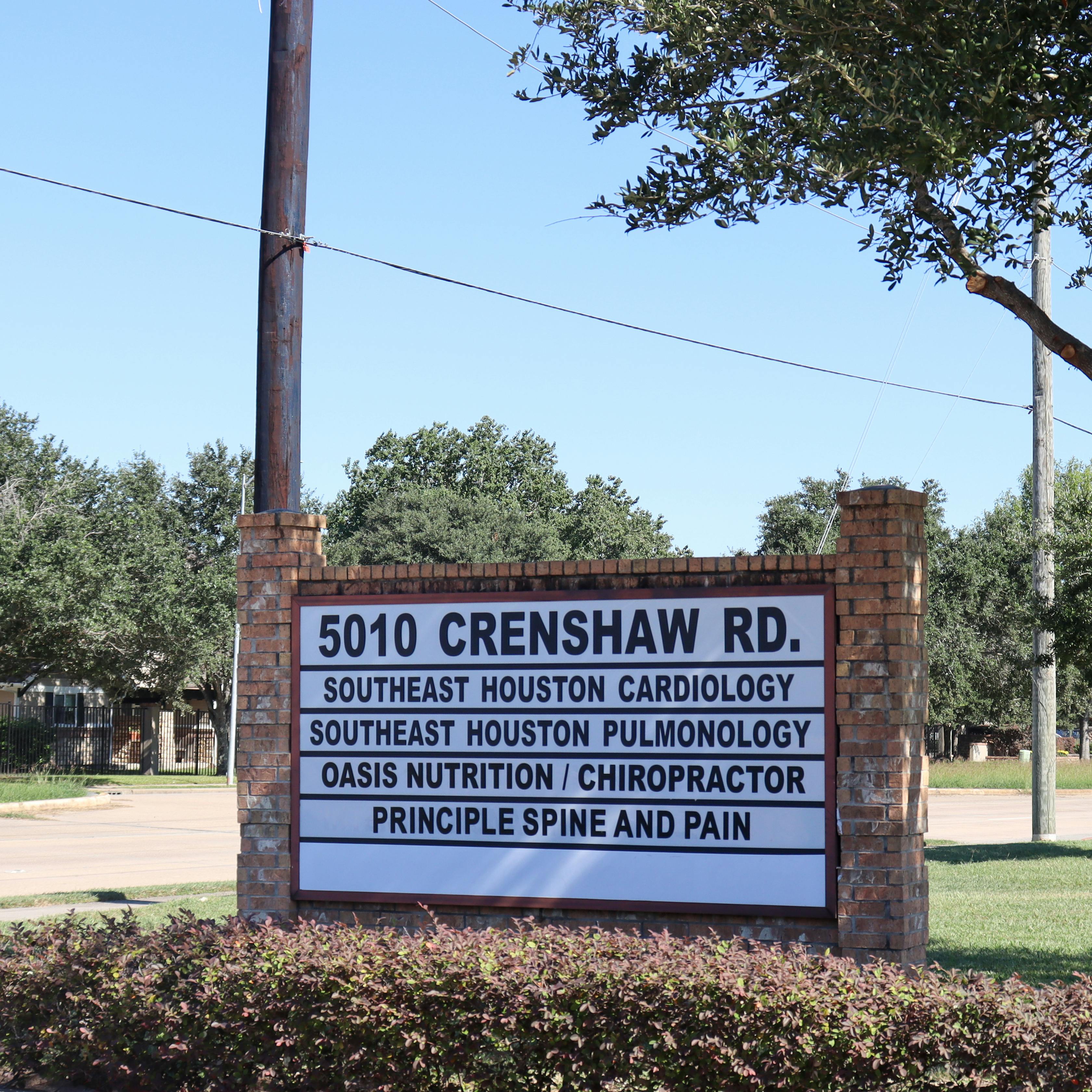Vascular Surgery

Expert Care for Artery and Vein Conditions
Your vascular system is your body’s lifeline—delivering oxygen-rich blood to every organ and tissue. But when arteries or veins become narrowed, blocked, or weakened, it can threaten your mobility, comfort, and even your life.
At CLS Health, our vascular surgery team provides expert care for conditions that affect your arteries and veins. We treat everything from peripheral artery disease (PAD) and carotid artery disease to aortic aneurysms and deep vein thrombosis (DVT). Our Surgeons perform procedures in both outpatient and hospital settings to match the level of care you need.
Whether you’re managing a chronic condition or navigating new symptoms, we’re here to restore circulation, relieve discomfort, and reduce your risk of future complications—with a care plan that's just right for you.
What is included in a vascular screening?
Vascular screening is a quick, painless, and non-invasive way to detect early signs of atherosclerosis—fatty buildup that can narrow or block your arteries. Left untreated, these blockages may increase your risk of stroke, heart attack, or limb loss.
Screenings may include imaging tests such as a carotid ultrasound, abdominal aortic aneurysm (AAA) screening, ankle-brachial index (ABI), or other blood flow studies.
If results suggest an issue, our vascular surgeons work closely with your primary care provider to ensure you receive the right care at the right time so you can stay ahead of serious complications and protect your long-term health.
Our Vascular Surgeons

Vascular Surgery

Vascular Surgery
Conditions Treated
- Carotid and Vertebral Artery Disease – Narrowing or blockage of arteries supplying the brain, increasing stroke risk.
- Peripheral Artery Disease (PAD) – Reduced blood flow to the legs and arms due to narrowed arteries.
- Advanced Ischemic Disease of the Lower Extremity – Severe blood flow restriction leading to pain, ulcers, or risk of limb loss.
- Aneurysm of the Descending Thoracic and Abdominal Aorta – Life-threatening bulges in major arteries that can rupture without warning.
- Descending Aortic Disease – Involves aneurysms or blockages in the descending thoracic aorta.
- Obstructive Arterial Lesions – Plaque buildup causing narrowed or blocked arteries in the abdomen or lower extremities.
- Deep Vein Thrombosis (DVT) – Formation of blood clots in deep veins, often in the legs.
- Varicose Veins & Chronic Venous Insufficiency – Weakened valves leading to poor blood return and vein swelling.
- May-Thurner Syndrome – Compression of the iliac vein, increasing the risk of left-sided DVT.
- Thoracic Outlet Syndrome – Compression of blood vessels or nerves in the upper chest, causing arm pain or circulation issues.
- Vascular Disorders of the Intestine – Compromised blood flow to intestinal organs, potentially causing abdominal pain and organ damage.
- Renal Artery and Intestinal Artery Disorders – Complex conditions involving restricted blood supply to kidneys and intestines.
Treatments & Procedures
- Venous Radiofrequency Ablation – A minimally invasive treatment for varicose veins that closes damaged veins using heat.
- Endovascular Stenting & Angioplasty – Opens narrowed arteries with a balloon and stent to restore blood flow.
- Descending Aorta Stent Placement – Endovascular approach for thoracic aortic aneurysms.
- Carotid Stenting – Minimally invasive treatment to open narrowed carotid arteries and reduce stroke risk.
- Lower Extremity Atherectomy, Angioplasty, or Stenting – Removes plaque and improves circulation in the legs.
- Carotid Endarterectomy – Open surgery to remove plaque from the carotid artery and prevent stroke.
- Abdominal and Thoracic Aortic Aneurysm Repair – Open or endovascular surgery to treat dangerous aneurysms.
- Lower Extremity Bypass Surgery – Bypasses blocked arteries in the legs to restore blood flow.
- Venous and Arterial Thrombectomy – Surgical removal of blood clots to restore circulation and prevent tissue damage.
- IVC (Inferior Vena Cava) Filter Placement & Removal – Prevents blood clots from reaching the lungs in high-risk patients.
- Dialysis Access Creation and Repair – Surgical formation and maintenance of vascular access for hemodialysis patients.
- Complex Vascular Reconstructions – For renal and intestinal arteries when standard procedures are not viable.
Don't see your insurance listed? We may still accept it! CLS Health updates accepted insurance plans regularly. Please call (281) 724-1860 to verify your coverage.
- Aetna Select
- Open Access Selects
- Elect Choice
- Aetna Open Access Elect Choice
- Aetna Choice POS II
- Managed Choice
- Open Choice PPO
- Aetna Medicare Advantage Plans
CLS Health does not accept:
- Aetna CVS Marketplace Plans
* Some providers may not accept this insurance, please call to confirm
- Superior Ambetter Core (Complete, Clear, Focused, Standard Silver and Gold)
- Superior Ambetter Value (Clear Value Silver, Focused Value Silver, CMS Standard Silver & Gold Value, Everyday Value Gold)
- Superior Ambetter Virtual (Ambetter Virtual Access Silver, CMS Standard Virtual Access Basic Silver, Ambetter Virtual Access Gold)
- Superior Health Plan CHIP*
- Superior Health Plan MAPD (Medicare Advantage Prescription Drug)
- Superior Health Plan Medicare
- Superior Health Plan MMP Medicaid*
- Superior Health Plan MMP Medicare
- Superior Health Plan STAR*
- Superior Health Plan STAR Kids*
- Superior Health Plan STAR+PLUS*
CLS Health participates in most Blue Cross Blue Shield plans including:
- Blue Choice PPO
- Blue Essentials
- Blue Essentials Access
- HealthSelect
- HealthSelect of Texas In Area
- Consumer Directed HealthSelect in Area
- HealthSelect of Texas Out of State
- Consumer Directed Health Select Out of State
- HealthSelect Secondary 65+
- Medicare Advantage HMO
- Medicare Advantage PPO
- Medicare Advantage Value HMO
- POS
- Traditional/Par Plan
- TRS-Active Care
- TRS-Care Standard
- BCBS MyBlue Health (Marketplace)
*Some providers may not accept Community Health Choice, please call to confirm
- MarketplacePremier
- Medicaid*CHIPCHIP PerinateSTAR
- Medicare AdvantageDual-Special Needs Plan (D-SNP)
CLS Health accepts most Cigna plans, including:
- Cigna HMO
- Cigna Local Plus
- Cigna Open Access Plus
- Cigna PPO
- ChoiceCare PPO
- EPO
- HMO
- HMO Premier
- Medicare Advantage Plans
- HumanaChoice - Medicare Advantage PPO plan
- Humana Gold Choice - Medicare Advantage Private Fee-for-Service (PFFS) plan
- Human Gold Plus - Medicare Advantage HMO & Special Needs Plan
- Military (TRICARE South Region Military Health Plan)
- POS - including Choice POS, National POS Open Access/Plus and Preferred POS Open Access.
- PPO
*Some providers may not accept United Healthcare, please call to confirm
- Commercial, HMO, POS, EPO and PPO Plans (Charter, Choice,Core, Doctors Plan, Freedon, Heritage, Navigate, Nexus ACO, Options PPO, Passport Connect, Select)
- Indemnity
- Medicare Advantage (AARP, Care Improvement Plus, C-SNP, D-SNP, I-SNP, Erickson Advantage, ERS Medicare Advantage, TRS-Care Medicare Advantage, UnitedHealthcare Chronic Complete, UnitedHealthcare Connected (Medicare-Medicaid Plan), UnitedHealthcare Dual Complete, UnitedHealthcare Group Medicare Advantage PPO, United Healthcare Medicare Complete)
- Community Plans* (CHIP, CHIP Perinate, Star, Star Kids, Star Plus, MMP)
- Wellmed (Wellmed Dual SNP Focus, Wellmed Medicare Advantage Focus)
*Some providers may not accept Wellpoint, please call to confirm
- Medicaid (All Texas Plans Including the Below)*
- CHIP
- CHIP Perinate
- STAR
- STAR+PLUS
- STAR Kids
- Medicare Advantage
- C-SNP
- D-SNP
- I-SNP
- Medicare Advantage HMO
- Medicare-Medicaid (MMP)
- Medicare-Medicaid Program (MMP)
- STAR+PLUS MMP
*Some providers may not accept insurance, please call to confirm
PPO Networks
- Beechstreet PPO
- Carnival Cruise Lines PPO
- Envolve Benefit Options Vision-PPO, HMO
- First Health
- Curative/First Health
- Galaxy Health Network
- HealthSmart Preferred Care
- Accel
- Healthsmart Payors Organization
- Multiplan PPO
- Tricare (Humana) PPO/Prime
Employer-Specific Plans
- Brazoria County Employees – Aetna TPA Brazoria County Employees
Workers’ Compensation Plans
- Workers’ Comp
- Auto & Workers’ Comp
Medicare and Medicare Advantage
- Medicare Traditional
- Medicare Advantage
- Memorial Hermann Health Solutions Commercial and Medicare
- Molina Medicare Complete Care HMO SNP
- Medicare-Medicaid Program (MMP)
- STAR+PLUS MMP
- Alignment Health Plan
- AllyAlign Health
- American Health Plans
- Florida Complete Care
- Gold Kidney Health Plan
- Imperial Health
- Independent Health
- Kaiser Foundation Health Plan of Washington
- Kaiser Foundation Health Plan of Colorado
- Mass Advantage
- Presbyterian Health Plan
- PriorityHealth
- Provider Partners
- SCAN
- UCare
- Vantage Health Plan
- Verda Healthcare
- Zing Health
Medicaid and CHIP Programs
- Molina Healthcare* (Marketplace, Medicaid, CHIP, CHIP Perinate, STAR, STAR Kids, STAR+PLUS)
- Texas Children's Health Plans*
- TMHP (Traditional Medicaid) Traditional Medicaid
Specialty Plans
- VA Community Cares Network CCN
FAQs
The most affected vessels include the:
- Carotid arteries – Located in the neck; they supply blood to the brain.
- Abdominal aorta – The main artery in the abdomen that can develop aneurysms.
- Femoral arteries – Found in the legs and commonly affected by peripheral artery disease (PAD).
Other arteries throughout the body may also be affected. Vascular diseases often involve clogged arteries due to cholesterol buildup (atherosclerosis) or weakened arterial walls that can lead to aneurysms. These are the types of issues vascular surgery is designed to treat.
Varicose veins are caused by weakened or damaged vein valves that allow blood to pool, often in the legs. Risk factors include genetics, prolonged standing, pregnancy, obesity, and aging.
No. Spider veins are smaller, surface-level veins that appear red or blue and are usually cosmetic. Varicose veins are larger, bulging veins that may cause pain, swelling, or heaviness in the legs.
PAD is a condition where narrowed arteries reduce blood flow to the limbs—usually the legs—causing symptoms like leg pain when walking, cold feet, or non-healing wounds.
Treatments include compression therapy, sclerotherapy, radiofrequency ablation (RFA), endovenous laser therapy (EVLT), and vein stripping. Minimally invasive procedures are often performed in-office with little downtime.
In many cases, vascular screening is covered if you have risk factors such as high blood pressure, diabetes, smoking history, or a family history of vascular disease. Coverage depends on your specific insurance plan.
Warning signs include leg swelling, aching or cramping, skin discoloration, non-healing wounds, cold limbs, and bulging veins. Prompt evaluation is important to avoid complications.
You should see a vascular specialist if you have persistent leg pain, visible veins, circulation problems, diabetic ulcers, or have been diagnosed with PAD or a blood clot.
Yes. Exercise, weight loss, elevating the legs, and avoiding prolonged standing or sitting can help improve circulation and reduce symptoms of vein disease.

